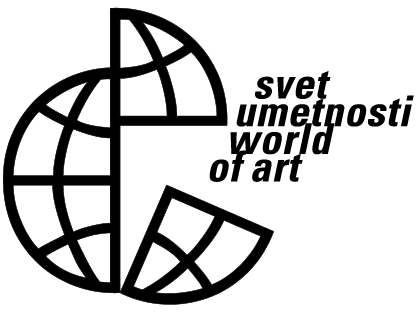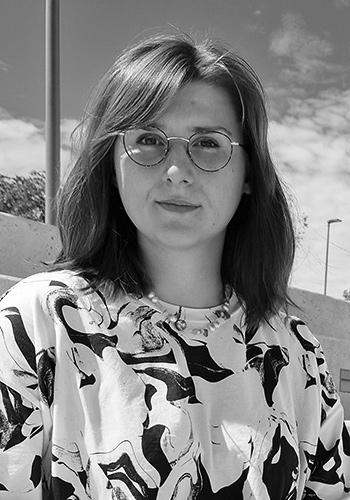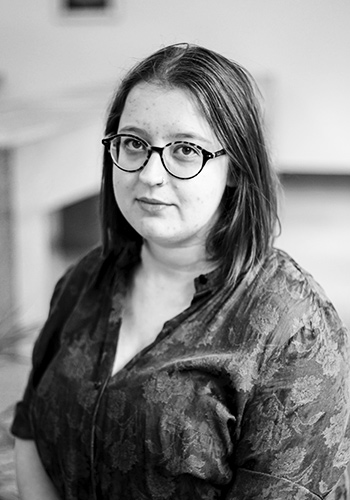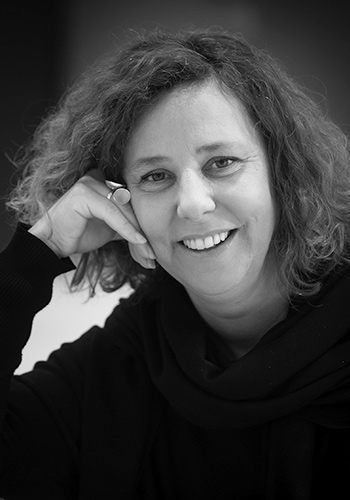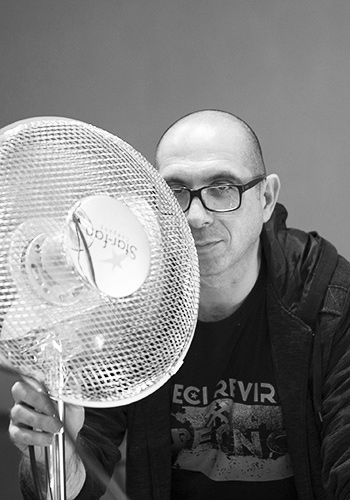Team SCCA
Tia Čiček has been the Artistic Director of Škuc Gallery since January 2020. She holds a Master’s degree in Art History from the Faculty of Arts, University of Ljubljana. In 2019, she completed the World of Art school. They have worked as a curator and producer of contemporary art at the Centre for Urban Culture Kino Šiška and the DobraVaga Gallery. In 2018, she attended a course at the Salzburg Summer Academy led by Ruth Noack and Grace Samboh, titled Thinking with Works of Art. They are a member of the collective bad curating.inc.
Lara Plavčak has been a professional associate at the SCCA Institute since 2019. She holds a degree in Art History from the Faculty of Arts and in Culturology from the Faculty of Social Sciences, University of Ljubljana. In 2011, she completed the World of Art school. She has curated contemporary art exhibitions at various venues in Slovenia and abroad. From February 2018 to September 2019, she served as Project Manager for Visual, Audiovisual, and Intermedia Arts at the Centre for Urban Culture Kino Šiška. From 2016 to 2019, she managed the ZINE VITRINE program at DobraVaga Gallery.
Urška Aplinc works as a producer and curator. In 2022, she was the Artistic Director of the Kino Šiška program for visual and audiovisual arts and intermedia; she is currently self-employed in culture as a curator and sculptor. In 2021, she earned a Master’s degree in Sculpture from the Academy of Fine Arts and Design, University of Ljubljana (ALUO), where she received three ALUO awards for her work. In 2018, she completed the World of Art school at SCCA-Ljubljana and became a professional associate at the Museum and Galleries of the City of Ljubljana. From 2019 to 2022, she was part of the DobraVaga Gallery collective, working as program coordinator and curator, and from 2020 to 2022, she led the cultural-educational program at Kino Šiška. She has curated multiple solo and group exhibitions. As part of her artistic practice, she has participated in several exhibitions and festivals in Slovenia and abroad, including Moderna galerija, Museum of Contemporary Art Zagreb, Galerija Škuc, Cirkulacija2, Centre of Contemporary Arts Celje, and Museum of Contemporary Art Metelkova.
Website: Vesna Bukovec
Mentors
Vadim Fiškin (Penza, 1965) graduated from the Moscow Institute of Architecture (1986). He lived in Moscow until 1996 and now resides in Ljubljana. His work explores the relationship between science, personal experience, desire, and imagination, between metaphysics and pragmatism, between the artificial and the real. His installations, sculptures, photographs, and drawings—often on themes of geography, time, light, aeronautics, and meteorology—are marked by a distinctive sense of humour. He has exhibited in numerous solo and group exhibitions, including: Venice Biennale (1995, 2003, 2005, 2017); 1st Biennale, Valencia; Manifesta 1, Rotterdam; Manifesta 10, Hermitage, St. Petersburg; Galerie Nationale du Jeu de Paume, Paris; Moderna galerija, Ljubljana; Galerija Gregor Podnar, Berlin; Martin-Gropius-Bau, Berlin; Palazzo della Ragione, Milan; Secession and BA WAG Foundation, Vienna; ZKM, Karlsruhe; MACRO, Rome; Drawing Center, New York. He first worked in Slovenia in 1992 at the invitation of Dragan Živadinov, co-creating three theatre projects. He has also collaborated with M. Berger, I. Kovač, E. Hrvatin, B. Jablanovec, I. Buljan, and regularly works with choreographer and dancer Mateja Bučar.
Alenka Gregorič is an art historian, curator, and writer. From 2003 to 2010, she was Artistic Director of Galerija Škuc; from 2010 to 2020, she was Program Director of Mestna galerija Ljubljana and Galerija Tobačna. She is currently employed at Cukrarna as Program Director and curator. She has curated numerous exhibitions in Slovenia and abroad, including curating the Slovenian pavilion at the Venice Biennale (2009) and co-curating the Ljubljana Graphic Biennale (2009). She has organised large retrospectives of women artists from the Balkan region in Istanbul (2016) and in Guangzhou and Hangzhou, China (2017). She has written numerous essays and articles for various publications and edited multiple catalogues, books, and other art publications.
Lecturers
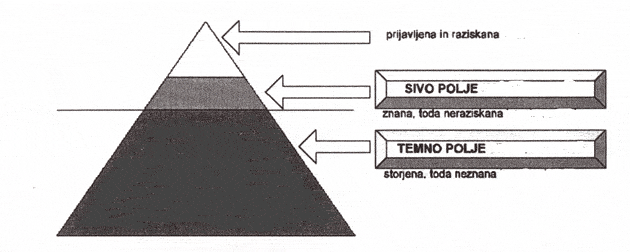
Alenka Pirman (1964) je umetnica in publicistka, samozaposlena v kulturi. Diplomirala iz slikarstva na Akademiji za likovno umetnost v Ljubljani (1989). Med letoma 1996 in 1998 je študirala antropologijo vsakdanjega življenja na Institutum studiorum humanitatis (ISH), leta 2022 pa doktorirala iz heritologije na Filozofski fakulteti Univerze v Ljubljani. Ukvarja se s preučevanjem družbene vloge umetnika_ pri posredovanju kulturne dediščine. V 90-ih se je njeno delo navezovalo predvsem na izmišljene institucije: SK8 Muzej (1991–93), RIGUSRS – Raziskovalni inštitut za geoumetniško statistiko RS (1997, z Vukom Ćosićem in Ireno Woelle) in Inštitut za domače raziskave (1994–98). Izvedla je nekaj metodoloških razstavnih projektov, mdr. je delala z zbirko nemških izposojenk (Arcticae horulae, 1991–98), z deponirano zbirko Policijskega muzeja (Primer. Umetnost in kriminaliteta, 2005, z Biserko Debeljak) in se v nadaljevanju posvetila razvoju efemernih umetniških del (Deveta Koromandija, od 2007). Leta 2014 je MGLC pripravil pregledno razstavo njenega umetniškega delovanja. Od leta 2004 deluje v okviru Društva za domače raziskave (DDR), kjer se ukvarja s fenomenom ljubiteljskega zbiranja in preučevanjem transformacije statusa predmeta skozi tržne, umetniške in muzealske procese.
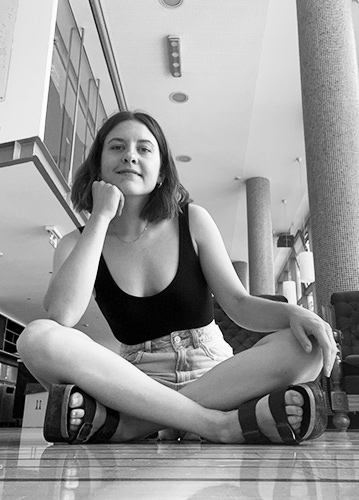
Dominika Maša Kozar began exploring the music world after studying musicology. As a member of the band FUTURSKI, she is active in music production and all aspects of band life. She works with CUK Kino Šiška, the MENT Ljubljana music festival, and the CoFestival dance festival in online promotion. She is a program associate at the Ljubljana club Gala Hala and a former manager and promoter of KAPA Records.
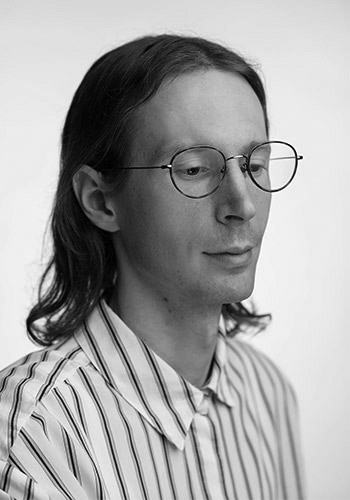
Ema Ograjenšek is a writer, curator, and critic of contemporary visual art. He is a former member of the editorial board of ŠUM and its research collective. He has collaborated with institutions such as the International Graphic Arts Centre (MGLC Ljubljana), Museum of Contemporary Art Metelkova (MSUM), Galerija Škuc, PhaseBook Prague, and the International Festival of Computer Arts (IFCA) through lectures and seminars.
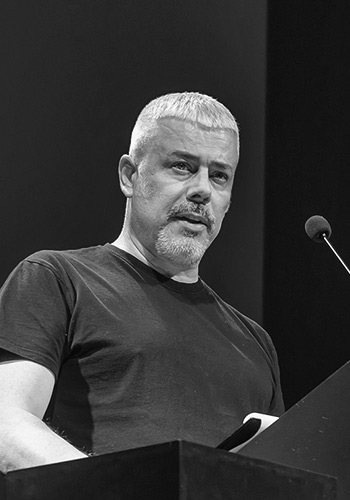
is a conceptual artist, performer and producer living in Ljubljana, Slovenia. He is the author of numerous videos, performances, installations and new media works which have been presented in several exhibitions and festivals around the world. He is the director of the film My Name Is Janez Janša, co-founder and co-director of Aksioma – Institute for Contemporary Art, Ljubljana (together with Marcela Okretič) and artistic director of the Aksioma | Project Space. He has been teaching at the Academy of Fine Arts and Design of the University of Ljubljana since 2016.
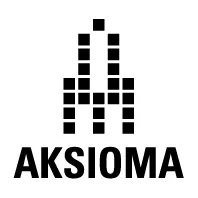
Aksioma – Institute for Contemporary Art, Ljubljana is a non-profit cultural organization that produces, presents, and disseminates art projects as well as exhibition, discursive, and educational programs with the aim of critically understanding the structures of contemporary society and the role that new technologies play in shaping the way we perceive it.
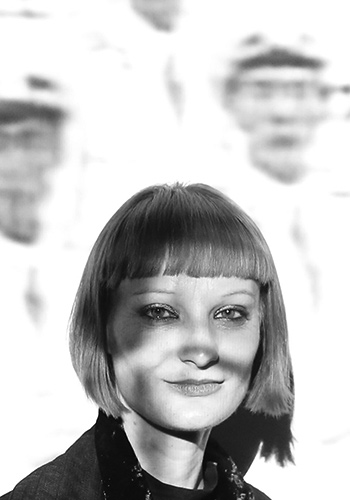
Jasna Jernejšek works as an independent curator, project manager, lecturer, writer, critic, and reviewer in contemporary visual arts. She focuses on contemporary authorial practices, photography theory and history, and visual literacy, combining them with social sciences. She holds a degree in Culturology (2007) and a Master’s in Communication Studies (2013). She writes exhibition and catalogue texts for journals and serves as Senior Lecturer and Program Director of the Photography Department at VIST – Faculty of Applied Sciences, Ljubljana. She also leads Sektor, a centre for media arts research and promotion, collaborating with domestic and international institutions.
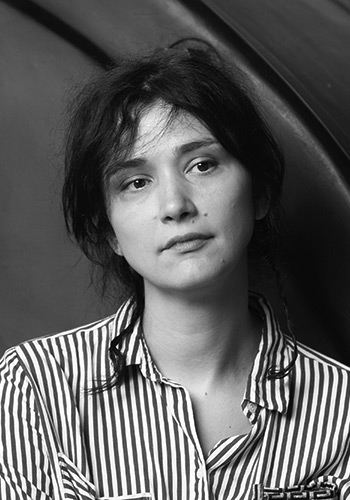
Lenka Đorojević v svoji praksi in delu v različnih kolektivih kritično preiskuje in interpretira ambivalenco položaja (umetniškega) subjekta v kontekstu produkcijskih, reprezentativnih, ideoloških in simbolnih narativov ter strategij poznega kapitalizma. Delovala je kot piska, kustosinja in koordinatorica projektov na Festivalu Mesto Žensk, Društvu Ljudmila, SCCA-Ljubljana, Radio Študent … Od leta 2015 je programska sodelavka Insitituta za sodobno umentost v Črni gori. Trenutno zaposlena kot producentka v Cukrarni.
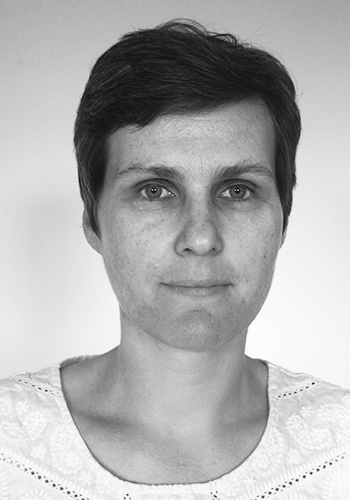
Katja Mahnič is an Associate Professor of General Art History at the Department of Art History, Faculty of Arts, University of Ljubljana. She teaches general art history, museology, and conservation, researching material culture, historical museology, exhibition development, and the role of art collections and museums in establishing art history as a scientific discipline, with a focus on accessibility.
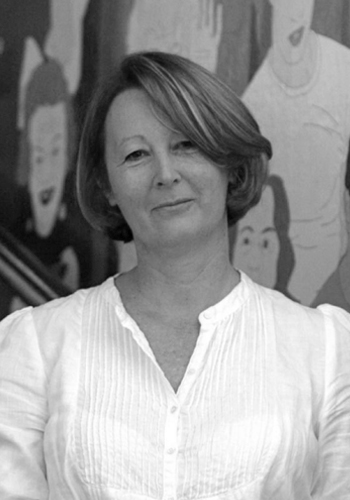
Lilijana Stepančič is an economist and professor of art history and sociology. She has served as director of cultural institutions and curator, writes art criticism, and publishes essays on 20th- and 21st-century art. She regularly contributes to Likovne besede.
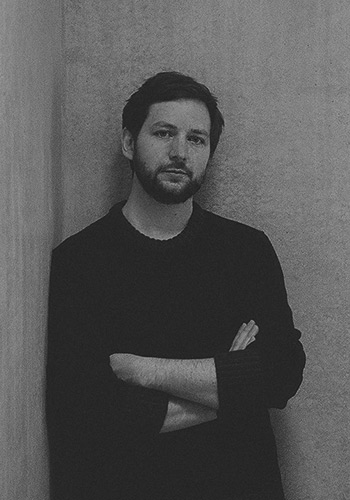
Matic Vrabič se že več kot deset let ukvarja z arhitekturo, oblikovanjem in kuratorstvom. Je soustanovitelj arhitekturnega biroja Mertelj Vrabič Arhitekti, ki deluje v Ljubljani od leta 2015. Njihovo delo vključuje oblikovanje pohištva, oblikovanje in kuriranje razstav, prenove objektov različnih meril ter projektiranje samostojnih stavb. Je soavtor slovenskega paviljona na 18. mednarodni arhitekturni razstavi La Biennale di Venezia. Kot gostujoči predavatelj in kritik je predaval na več evropskih univerzah, med drugim na University College Dublin, TU Berlin, Academy of Architecture USI Mendrisio, TU Wien in Università Iuav di Venezia.
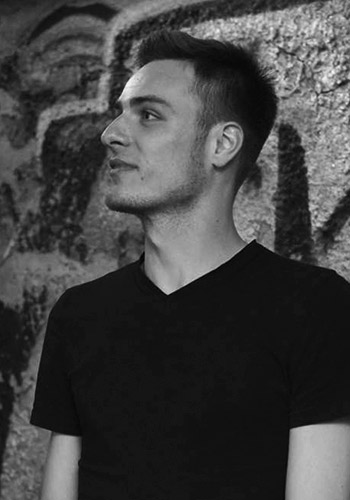
Miha Satler works in arts, cultural production, and advocacy. At Asociacija, he provides professional support, including resolving legal and administrative issues for self-employed cultural workers.
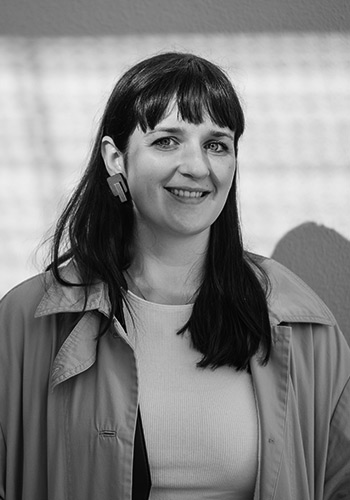
Mojca Podlesek je vodja odnosov z javnostmi za Cukrarno in Indigo festival. V tej vlogi skrbi za oblikovanje prepoznavnosti teh kulturnih prostorov, kjer tesno sodeluje s kustosinjami in umetniki, da bi njihovo vizijo in sporočilo učinkovito prenesla javnosti. Njen poudarek je na premišljeni komunikaciji, ki zajema odprtja razstav, spremljevalne programe, gostujoče dogodke ter pedagoške in andragoške programe Cukrarne. Večletne izkušnje v digitalnem marketingu, kjer je delala v različnih marketinških agencijah, so ji prinesle trdno osnovo v digitalnih strategijah, vodenju projektov in ustvarjanju vsebin. To znanje sedaj prenaša v delo v Cukrarni. Preden se je pridružila ekipi Cukrarne, je delala kot urednica za odrsko redakcijo pri Koridorju – križišču umetnosti in kot sodelavka kulturne redakcije na Radiu Študent. Kot magistrirana dramaturginja ima izostren občutek za umetniško vizijo in pripovedno moč, kar se odraža tudi v njenem delu.
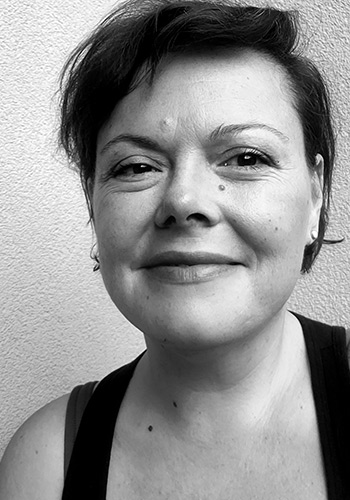
Polona Torkar je vodja strokovne pisarne in podpredsednica Asociacije, v domačem kulturnem prostoru pa v različnih vlogah deluje od 2006. Med drugim je med 2018 in 2020 opravljala funkcijo odgovorne urednice Radia Študent, kot vodja projektov ali del produkcijskih ekip pa sodelovala z Društvom Ljudmila, s prostorom razvojnih umetnosti osmo/za KUD Channel Zero in drugimi.
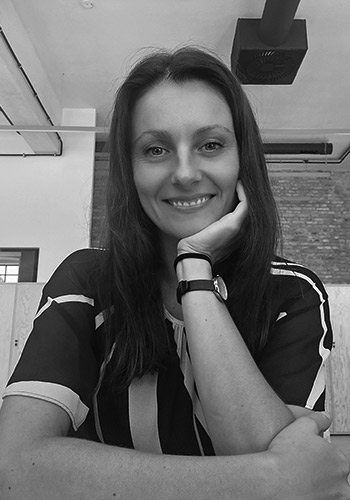
Nina Vošnjak je od leta 2022 zaposlena kot kustosinja pedagoginja v Cukrarni, kjer pripravlja obrazstavne programe, katerih namen je približevanje sodobne umetnosti otrokom in mladostnikom_. Pred tem je 8 let sodelovala s pedagoško službo Narodnega muzeja Slovenije in 2 leti kot pedagoginja delovala v Mestnem muzeju Ljubljana. Z Mestno knjižnico Ljubljana je večkrat sodelovala pri projektu knjižnično-informacijskega opismenjevanja s poudarkom na spoznavanju naravne in kulturne dediščine, krajši čas pa je bila zaposlena na področju vseživljenjske karierne orientacije na Zavodu za zaposlovanje RS. Ker si prizadeva sodobno umetnost približati ranljivim skupinam, je kot prostovoljka z željo po pridobivanju praktičnih znanj za delo z različnimi ciljnimi skupinami sodelovala z društvom Altra, Socialno akademijo in Legebitro, ter z istim namenom opravila študijski program Psihoterapevtske propedevtike.
Rebeka Vidrih, docentka za področje umetnostne zgodovine na Oddelku za umetnostno zgodovine Filozofske fakultete Univerze v Ljubljani. Študirala umetnostno zgodovino, leta 2008 doktorirala z disertacijo z naslovom Teorija umetnosti in umetnostne zgodovine v drugi polovici 20. stoletja: klasična tradicija in novo umetnostno zgodovinopisje. Predava predmete Umetnost novega veka v Zahodni Evropi I (16.–18. stoletje) in Umetnost novega veka v Zahodni Evropi II (19.–20. stoletje), Fotografija in mediji sodobne umetnosti ter Sodobne teorije in metode umetnostne zgodovine.
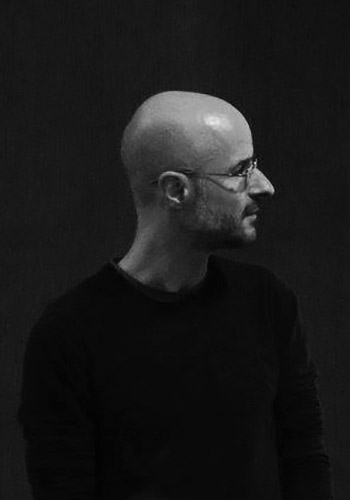
Rok Vevar je leta 2012 v svojem stanovanju ustanovil Začasni slovenski plesni arhiv in ga aprila 2018 preselil v Muzej sodobnih umetnosti Metelkova v Ljubljani. Je sokurator mednarodnega festivala sodobnega plesa CoFestival (Nomad Dance Academy Slovenija, Kino Šiška). Leta 2018 je uredil knjigo Dan, noč + človek = Ritem: Antologija slovenske sodobnoplesne publicistike 1918–1960, za katero je izbral gradiva in napisal spremna besedila. Leta 2020 je izšla njegova monografija Ksenija, Xenia: Londonska plesna leta Ksenije Hribar 1960–1978. Za svoje delo je leta 2019 prejel nagrado Ksenije Hribar ter leta 2020 Priznanje Vladimirja Kralja za dosežke na področju gledališke kritike in teatrologije za obdobje 2018–2019. Leta 2020 je kot sokurator sodeloval pri razstavah Avtografija, zagonetnost, uporništvo: fotografija Božidarja Dolenca in SPOZNANJE! UPOR! REAKCIJA! Performans in politika v devetdesetih letih v pojugoslovanskem kontekstu v Muzeju sodobnih umetnosti Metelkova. V akademskih letih 2020/21 ter 2021/2022 je poučeval na Privatni univerzi Antona Brucknerja (Anton Bruckner Privatuniversität) v Linzu (Avstrija), oddelku za sodobni ples in raziskave gibanja. Je samozaposlen na področju kulture.
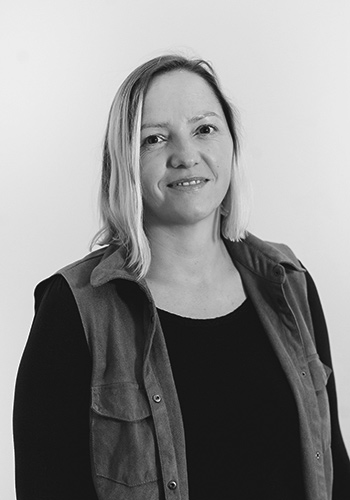
Saša Lesjak, social pedagogue, poet, and mother of three, co-founded Zavod RISA, serving as Head of Social Programs. For over 20 years, she has worked with children, youth, and adults in vulnerable positions. She conducts workshops, seminars, and training on social inclusion and easy reading. She co-developed a four-level easy reading system in Slovenian and authored multiple adaptations and original texts.
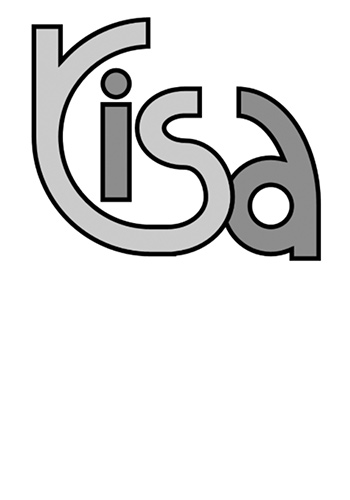
Zavod RISA, Center za splošno, funkcionalno in kulturno opismenjevanje je bil ustanovljen za neodvisne raziskave, izvajane s pomočjo uporabnic_, razvoj raznolikih programov, svetovanje, komunikacijske, izobraževalne, socialne in družbene dejavnosti na področju oviranosti ter človekovih pravic. Glas želi dajati predvsem ljudem, ki so najpogosteje tiho ali preslišani. RISA, prva organizacija, ki je v Sloveniji sistematično uvedla in pričela razvijati koncept lahkotnega branja, sodeluje z organizacijami iz vse Slovenije in Evrope. Uporabnice_ in soustvarjalke_ storitev so ljudje, ki imajo zaradi kognitivnih, jezikovnih ali drugih ovir težave pri pridobivanju in posredovanju informacij, kar povzroča ovire pri organizaciji lastnega življenja in samostojnosti.
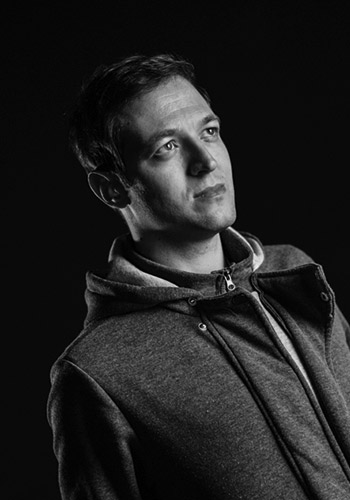
Simon Gmajner previously worked in international relations and analysis; for over 15 years, he has been active in cultural and artistic fields, mainly as a producer and project coordinator. He focuses on international projects in contemporary research-based art, especially transdisciplinary collaborations and intersections between art, science, and technology, including projects funded by Creative Europe and the European Commission. He produces and coordinates Vivarij (Laboratory for Plants, Animals, and Robots) at Zavod Kersnikova.
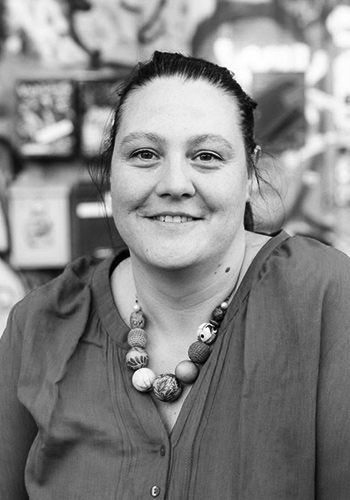
Urška Jež holds a degree in Culturology and a Master’s in NGO Management. She has been a cultural producer since 2006 with Društvo Mesto žensk. Previously, she worked as Executive Producer at Animateka International Animated Film Festival and collaborated with other NGOs in the cultural sector. She has conducted fundraising training and shares knowledge through workshops.
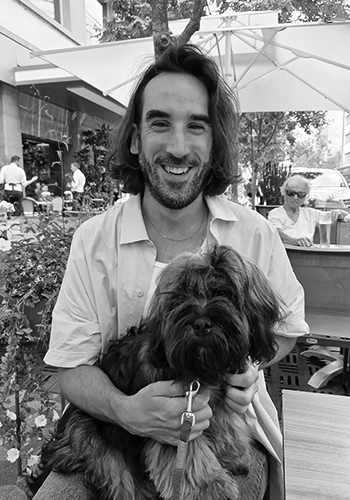
Vladimir Vidmar is the Artistic Director of the Small Gallery of the Bank of Slovenia. Between 2014 and 2018, he was Artistic Director of Galerija Škuc. He holds degrees in Philosophy and Journalism from the University of Ljubljana. His curatorial projects include numerous solo exhibitions and international group projects. He has published extensively on contemporary art practices and has taught at the Academy of Fine Arts and Design, Ljubljana, since 2016.
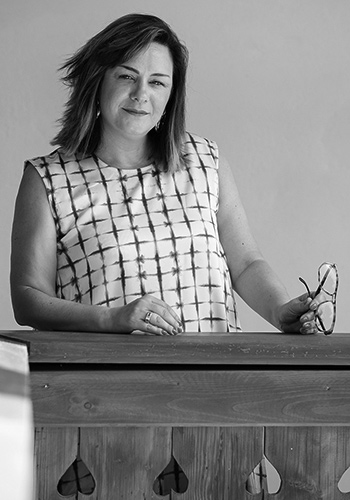
Yasmín Martín Vodopivec is a cultural manager and curator. She completed postgraduate studies in international cooperation and cultural management, a Master’s in management of cultural institutions and companies (University of Barcelona), and a Master’s in Education and Museums: Heritage, Identity, and Cultural Mediation (University of Murcia). Since 2011, she has been Assistant Director at MGLC, applying her expertise across film, music, dance, and visual arts to museum programming and the Ljubljana Graphic Biennale.
